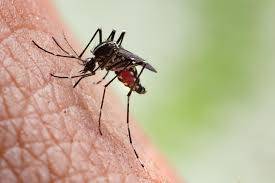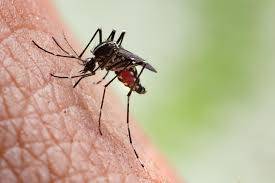Mosquitoes are abundant in the summer, and what annoys us the most is their proximity to our ears and their continuous buzzing, along with the pain and itching caused by their bites. This disrupts our outdoor gatherings in gardens and even trips, making us constantly seek solutions to get rid of them. But have you ever wondered what causes this annoying buzzing produced by mosquitoes?
Researchers revealed that the buzzing we hear is mostly just a side effect of the mosquito's wing beats, according to a report published by "Telangana Today." This buzzing we hear is likely from the female mosquito, which needs to find a blood meal after mating to gain enough energy to produce eggs. When the female flies toward a target, she flaps her wings about 500 times per second at a frequency ranging between 450 and 500 hertz.
**Searching for Carbon Dioxide**
Female mosquitoes are drawn to the carbon dioxide we exhale, which stimulates them to start searching for a host (the human body). They fly back and forth to track its concentration on a person. In other words, mosquitoes buzz around our heads because that is where we emit most of the carbon dioxide through breathing. Additionally, female mosquitoes use taste sensors on their feet to determine if a human or animal is suitable for them to feed on in their next meal.
**Preferred Blood Type O**
Some studies have indicated that blood type O is their favorite, but other factors, like genetics and even a person's diet, play a more significant role in how "appetizing" someone's taste is. Furthermore, another study found that female mosquitoes were more attracted to men who had less diverse bacteria on their skin, and they partially tend to favor people who wear dark colors, like black.
Most mosquitoes are not attracted to our heads; they are more inclined to search for our feet, which secrete bacteria that emit enticing odors to mosquitoes. It is noted that a study conducted in 1996 found that female mosquitoes of the Anopheles genus, responsible for transmitting the malaria parasite, are attracted to the bacteria found on human feet. This bacteria, Brevibacterium linens, is the same one that gives Limburger cheese its distinctive smell. Another study in 2013 confirmed that mosquitoes are indeed attracted to Limburger cheese.




